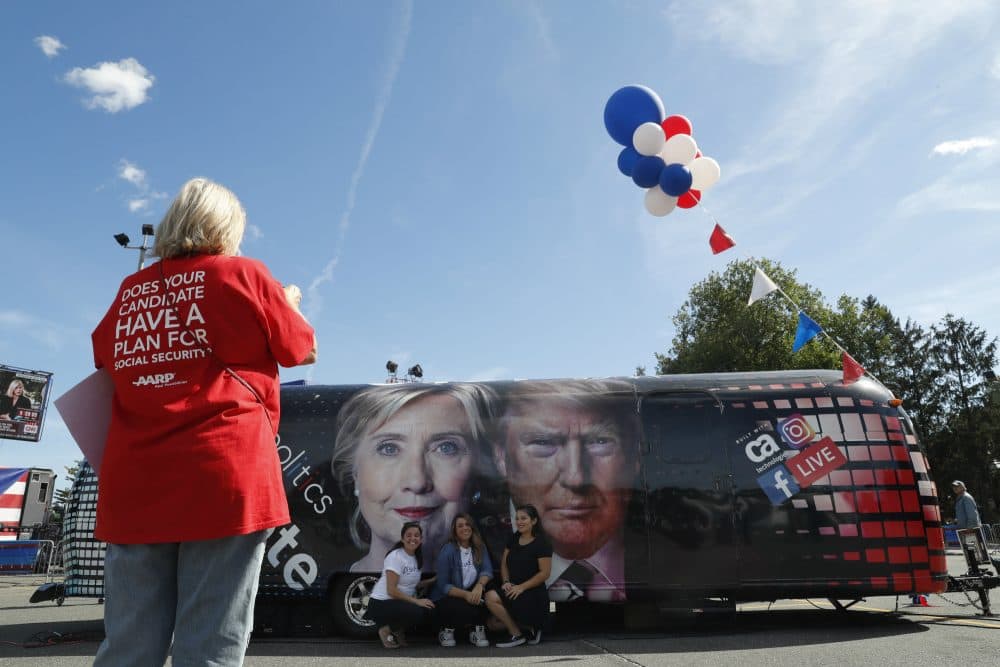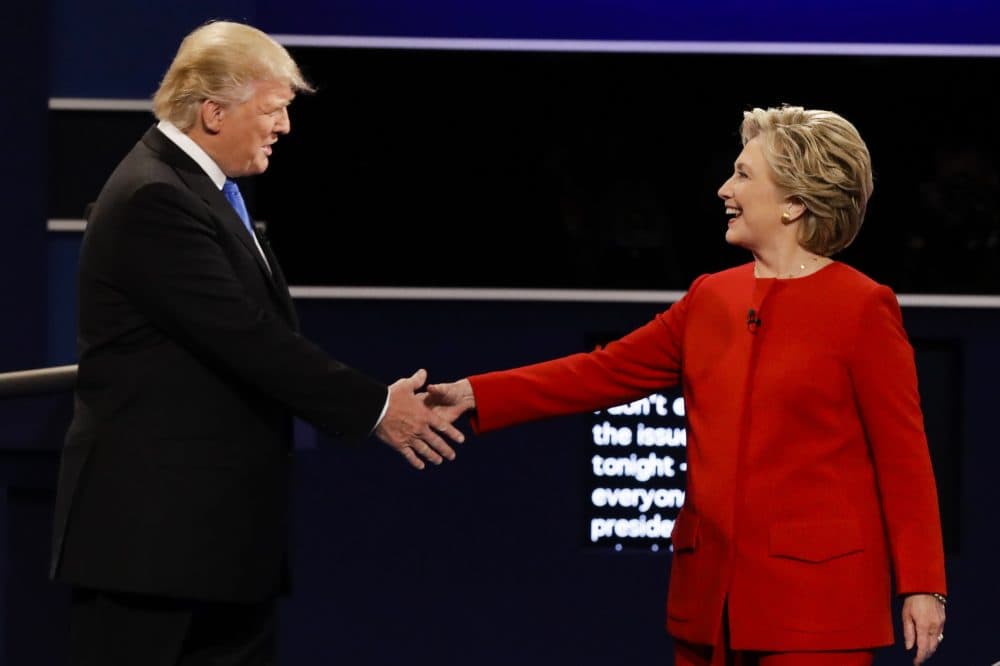Advertisement
After A Grand Build Up, Anticlimactic First Debate Contained Few Surprises

Despite the historic hype, the first presidential debate between Hillary Clinton and Donald Trump contained few surprises and actually ended up reflecting many of the unfortunate oddities of the 2016 election cycle.
Clinton did not connect with viewers as particularly warm. Her obsessive preparation led sometimes to flat, rehearsed answers that didn’t always convey broader themes. She resorted to a conventional debate approach, understandably to draw a clear distinction with her inexperienced and volatile rival.
Clinton stayed mostly on point and remained focused, sticking closely with her campaign themes. Her strongest moment came late in the debate, when she repeated one of her campaign mantras, “words matter,” aiming her comments at the international community to reassure them that the U.S. would live up to its treaty commitments despite the rhetoric from the campaign trail. It was here Clinton was at her best, appearing like a leader speaking to other heads of state to frame an image for the viewer.
Clinton’s low points came during her expected goading of Trump. The bad side of the Clinton legacy reared its head at times during those nasty exchanges, and the tenor of the evening suffered as a result.
Strangely, the overwhelming emotion the debate left the viewer with was melancholy ... maybe it was the realization that the electorate deserves better.
Trump, in contrast, performed poorly as the night wore on, arguably not exceeding even the extremely low expectations set for him by the media.
The relatively open debate format worked to Trump’s disadvantage by giving him a lot of room to trip up. At times, Trump’s inexperience and apparent lack of preparation became evident as he seemed to run out of things to say. When this occurred, he defaulted to repeating and sometimes jumbling his talking points — those same ones he’s been using in auditoriums in battleground states across the nation for months — but would not add any depth to them. His laziness ran the risk of insulting undecided viewers looking to learn more about him.
Lester Holt, to his credit, held back and allowed the candidates to talk and spar at times. This served to exploit Trump’s weakness — superficiality — and allowed Clinton to appear more composed over time because she had information to draw upon. Criticism of Holt by the Trump camp in the spin room was misguided.
Trump got off to a strong start, for instance effectively pinning NAFTA on Clinton and drawing attention to the candidate’s "30 year" career as a Washington insider. These themes have worked well for Trump in battleground states and have the potential to hurt Clinton in states like Pennsylvania, Ohio and Michigan.

As the debate passed the half-hour mark, though, Trump meandered and started to wing it. His response to Holt’s question on President Barack Obama’s birth certificate, for example, was so disjointed that it was actually difficult to understand. And that answer was to a question that Trump admitted — and Clinton pointed out — he had anticipated and given some thought. Similarly, his repeated reference to Fox News television personality Sean Hannity as a source for his position about the invasion of Iraq in 2003 seemed desperate and amateurish.
It wasn’t Trump’s temperament, but his lack of effort that betrayed him on Monday night.
As for his temper, Trump’s new campaign team apparently got through to him and he held back. At times he seethed visibly when Clinton took shots at his business, tax returns and disrespectful comments about women.
Yet, Trump left a lot on the table.
He even whiffed on a softball when Holt asked about cyber security. It was an intentional, easy segue into Clinton’s email server controversy — an issue that has hurt Clinton materially in recent polls. To Clinton’s relief, Trump simply missed the point. Trump also failed to work in any mention of the Clinton Foundation pay-to-play issues during his many minutes of open-ended rambling, where Holt certainly gave him the opportunity.
It is a good bet that Trump will override his campaign strategists and come out far more aggressively in the next two debates.
Strangely, the overwhelming emotion the debate left the viewer with was melancholy. Perhaps it was an anti-climax after the grand build-up, or maybe it was the realization that the electorate deserves better.
Remarkably, given the stakes in this election, the debate had few highlights — and mostly lowlights. It lacked inspirational moments, emphasized the nation’s troubles over its optimistic future and wondrous exceptionalism, and seemed like a pit stop rather than a defining moment on the way to more of the same until November.
It is a good bet that Trump will override his campaign strategists and come out far more aggressively in the next two debates. This debate didn’t knock Trump out of the running, but his step forward into a virtual dead-heat over the last month will take two steps back after his poor performance at Hofstra and he may lose a few points in the polls. All the more reason for him to eschew restraint.
The spin from both sides will be intense as they try to reframe the debate to show that their side won. In this first debate, however, the electorate didn’t come out a winner.
